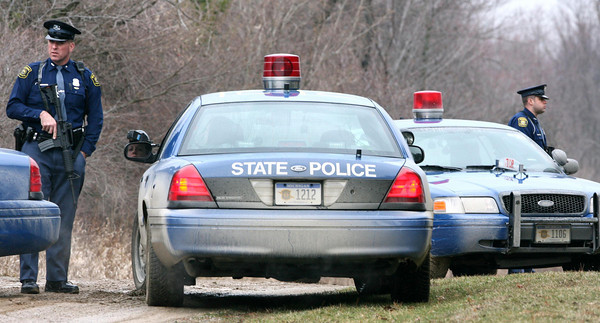Property Seizure -- Innocent Lives Devastated

Civil Asset Forfeiture - Innocent Lives Devastated
Civil asset forfeiture (property seizure, or CAF) is, for those who don’t know: the police seizing your stuff if they believe you or your property are supporting criminal activity. Your ‘stuff’ in this definition can include your cell phone, your cash, and even your home.
A quick and dirty of what you need to know:
- CAF is used in every American state
- Your property can be ‘charged’ on its own even if you’ve never broken the law
- If your property is taken you need to prove that you were never involved and did not know about the crime; essentially the opposite of innocent before proven guilty
- Police precincts, or state and local governments, keep a large chunk (or all) of the funds they seize. This extra income source ‘encourages’ a stronger police focus on CAF

Photo Credit: Business Insider
Robbery in Texas
These ingredients produce a powerfully potent problem pie. For example, the Texas town of Tenaha turned property seizure during traffic stops into a healthy revenue stream. Police here seized $3 million between 2006 and 2008 from at least 140 people. According to the ACLU, victims were mostly Black or Latino.
“How was that happening??” The rational person asks… Continuing the War on Drugs, Tenaha was operating a ‘drug-interdiction’ program. Property seizure is alleged to help reduce drug-related activity. However, the result that we can actually see is innocent travelers losing hundreds or even thousands of dollars for driving through Tenaha.* The ACLU filed a class action lawsuit on behalf of the victims. Turns out none of the ACLU’s clients in this case had been arrested or charged with a crime – they simply had their money seized, and in some cases their children taken.
Dale Agostini owned a restaurant and refused to surrender $50,000 that he planned to use on restaurant equipment. As in most purchases, cash allowed him to negotiate better deals. Police seized his money and his 16-month-old son was taken by child protective services. Luckily, Agonstini had proof that his money was clean which allowed him to get his son back, be released from jail, and (after several months and fees) get his money back. Hardly a pleasant road-trip.

Michigan – Raiding the Retired
A retired cancer patient in Michigan, Thomas Williams, was left handcuffed on the floor while police raided his rural home and seized his car, $11,000 in cash, his TV, cell phone, shotgun, and attempted to gain possession of his home. Williams is disabled, carries a medical marijuana card, and at the time of the raid was 72 years old.
The reason for the raid? While Williams is legally allowed to grow 12 marijuana plants; when some began to die he cloned them and started raising the seedlings. In the view of the police this put him over the limit. Even still, he was never charged with a crime. In Michigan police can seize property if they suspect a crime was committed even without enough evidence to press charges. The focus appears to be on taking property rather than preventing criminal activity.

Nationwide
At the Contemporary Art Institute in 2008 party attendees at ‘Funk Night’ were forced to the floor and 44 attendees had their vehicles seized. The crime: the Art Institute failed to get an alcohol permit. Attendees had to pay $900 to get their vehicles back in addition to administrative and legal hassles.
In Philadelphia police seized the home of the Clements sisters, Tracy and Sheila. Although they owned the home and refused to let their brother live with them, when William Clements barged in and was arrested in their home police seized the house. Williams was arrested for drug-related offences but the sisters had no connection to the crime. Philadelphia’s large property seizure income was directly linked to salary payouts and created “a perverse incentive that encourages the overuse of civil asset forfeiture”(The Daily Signal).
The Big Issue
Everyone thinks they are doing their jobs. Politicians want to cut back on drug use and crime, police chiefs want to keep the peace and the income to support their precincts, police officers are following orders. The fact is they are doing their jobs, and harming a lot of people along the way. We need to realize that good intentions can still hurt people; even devastate them.

Cutting back Civil Asset Forfeiture is a starting point for our criminal justice system to stop punishing innocent people. There’s a major ballot measure in Colorado called “Stop the Shakedowns” and other states have been moving towards CAF reform. Unfortunately the federal government, specifically individuals like Attorney General Jeff Sessions, are moving in the wrong direction. There’s still plenty of work to be done on this front.
*Travelers as in drivers on highways near Tenaha, Texas.
Thanks for posting about such an important topic! Jeff Sessions and his ilk are bad for citizens and bad for America.